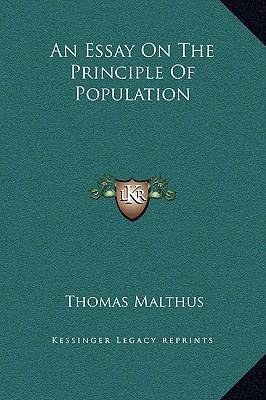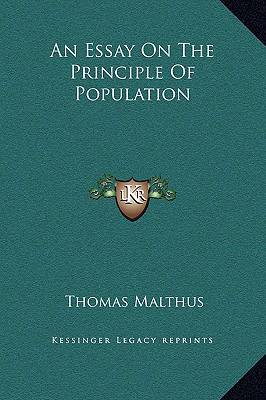
- Afhalen na 1 uur in een winkel met voorraad
- Gratis thuislevering in België vanaf € 30
- Ruim aanbod met 7 miljoen producten
- Afhalen na 1 uur in een winkel met voorraad
- Gratis thuislevering in België vanaf € 30
- Ruim aanbod met 7 miljoen producten
Zoeken
€ 51,45
+ 102 punten
Uitvoering
Omschrijving
""An Essay on the Principle of Population"" is a book written by Thomas Malthus in 1798. The book discusses the relationship between population growth and the availability of resources. Malthus argues that population growth will inevitably outstrip the availability of resources, leading to famine, disease, and other forms of suffering. He suggests that preventative measures such as moral restraint, delayed marriage, and birth control should be implemented to slow population growth and prevent these outcomes. Malthus' ideas were controversial at the time and continue to be debated today. The book has had a significant impact on the field of economics and the study of population dynamics.The principal objects which human punishments have in view are undoubtedly restraint and example; restraint, or removal, of an individual member whose vicious habits are likely to be prejudicial to the society'; and example, which by expressing the sense of the community with regard to a particular crime, and by associating more nearly and visibly crime and punishment, holds out a moral motive to dissuade others from the commission of it.This scarce antiquarian book is a facsimile reprint of the old original and may contain some imperfections such as library marks and notations. Because we believe this work is culturally important, we have made it available as part of our commitment for protecting, preserving, and promoting the world's literature in affordable, high quality, modern editions, that are true to their original work.
Specificaties
Betrokkenen
- Auteur(s):
- Uitgeverij:
Inhoud
- Aantal bladzijden:
- 124
- Taal:
- Engels
Eigenschappen
- Productcode (EAN):
- 9781169251571
- Verschijningsdatum:
- 10/09/2010
- Uitvoering:
- Hardcover
- Formaat:
- Genaaid
- Afmetingen:
- 178 mm x 254 mm
- Gewicht:
- 435 g

Alleen bij Standaard Boekhandel
+ 102 punten op je klantenkaart van Standaard Boekhandel
Beoordelingen
We publiceren alleen reviews die voldoen aan de voorwaarden voor reviews. Bekijk onze voorwaarden voor reviews.











